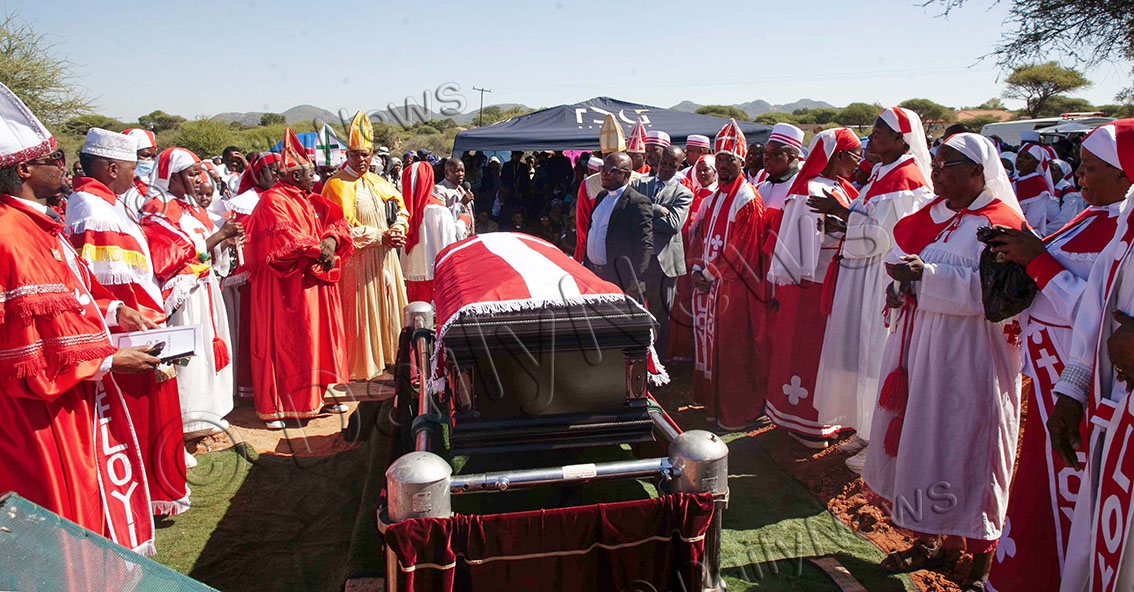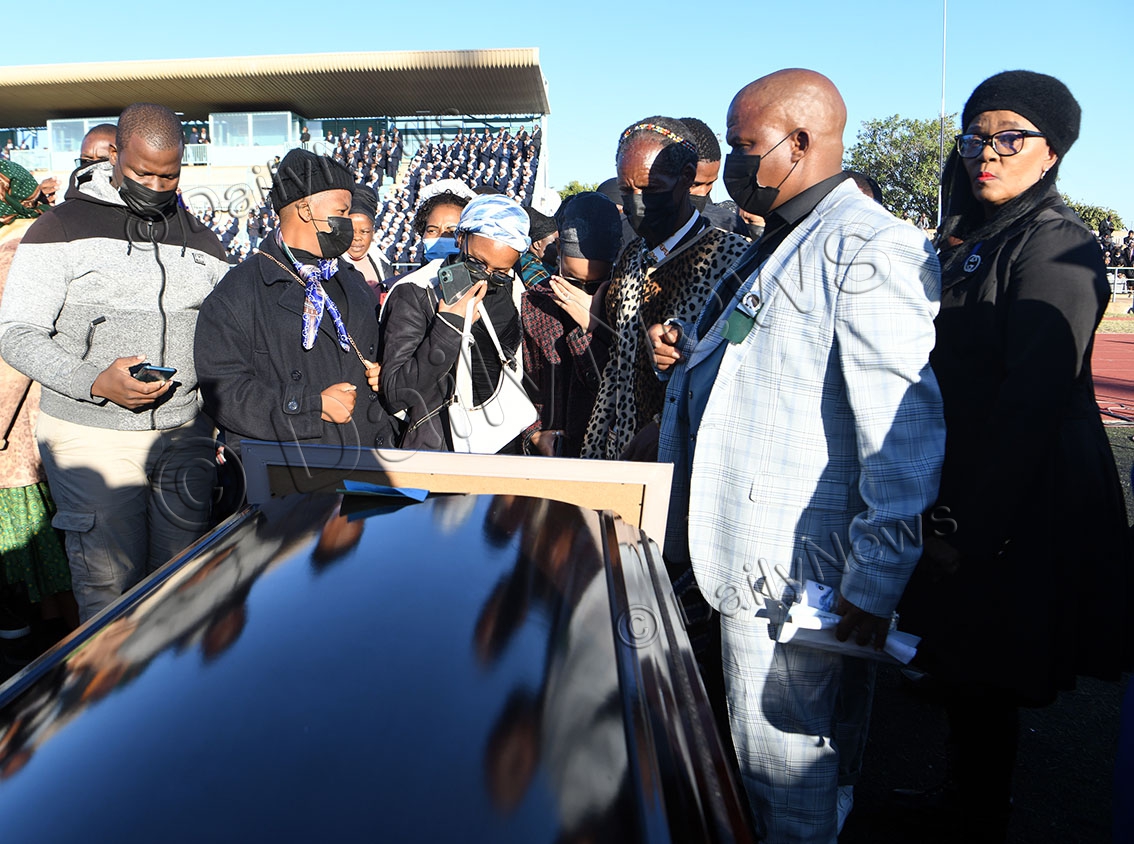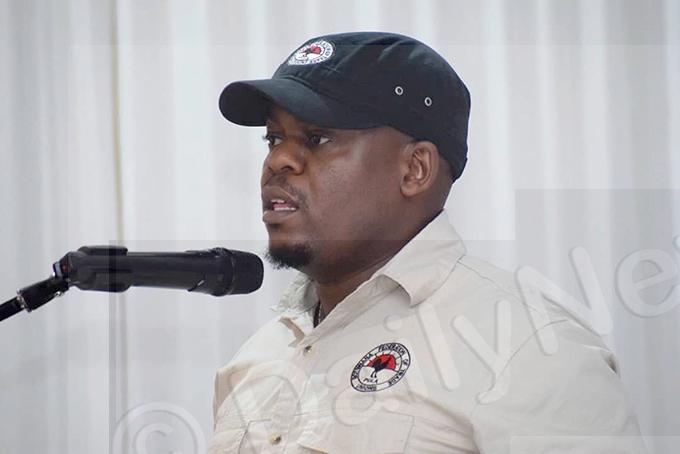Nation bids farewell to the fallen faithful
05 May 2024
In the verdant, hilly expanse of our motherland a silence heavier than the sun-baked soil envelopes the nation.
On this sombre day, a nation said goodbye to 44 St Engenas Zion Christian Church (ZCC) members and their bus driver, extinguished far too soon by a single, horrific moment.
The date, March 28, 2024, has been etched into this country’s collection of memories, a solemn reminder of the day fate stole 44 parishioners of the St Engenas ZCC Molepolole Branch and their bus driver during a pilgrimage to the holy city of Moria in South Africa.
In the aftermath of the crash, the survival of an eight-year-old girl captured the hearts and imaginations of people around the world.
As the media clamoured for answers, experts and eyewitnesses searched for clues to explain this seemingly impossible miracle. But even as they pieced together the details of her escape, the truth seemed to lie somewhere beyond rational explanation.
For many, the little girl had become a symbol of hope amidst the tragedy, a living reminder that even in the darkest moments, a spark of light can flicker and illuminate the way.
As the fallen faithful were finally laid to rest, their shared legacy is a testament to the enduring power of faith, and to many, the date of May 4, 2024, will be marked as a day of remembrance to the fallen heroes.
On the day of the funeral on Saturday morning, as 45 hearses, each carrying a dark, wooden oak-like casket, arrived in a military-like formation at the Molepolole Sports Complex, escorted by sirens and police blue lights, an eerie hush descended upon the crowd.
One by one, the caskets emerged, draped in the same solemn shade of brown, each bearing a number from 1 to 45, a silent reminder of the lives that were no more.
As the caskets were arranged in lines, the mourners fell silent, their breath caught in their throats, their eyes welling with tears. It was a stark, almost unbearable display of finality, a piercing reminder that these 45 once-living souls had been torn away from the world far too soon.
Grief, like a dark veil, descended upon the crowd, compounding with each casket that was placed on the grassy field, with each number increasing the magnitude of the feeling of loss.
In that heart-wrenching moment, the fragility of life became all too evident. Where once there had been vibrant smiles, hearty laughter, and lively debates, now there were only cold caskets and heavy hearts.
And as the 45 caskets lay before the mourners like an army of brown ghosts, their spirits could almost be felt, lingering in the air, mourning not just the loss of their own lives, but the loss of all that was yet to come; birthdays, weddings, graduations, milestones now erased from the pages of history.
As the morning sun shone down upon the caskets, bathing them in a gentle, golden light, casting shimmering reflections that danced along the polished wood, a chilling stillness descended upon the mourners.
The sadness in the air was palpable, heavy with grief, punctuated by the soulful music of the St Engenas church choir, and the occasional sob, raw and unguarded.
A solemn congregation of family members, donning predominantly black, stood as one, united by the shared pain and sorrow that rippled through them like an unending wave.
After the names of the fallen had been read aloud by Deputy Permanent for Information and Broadcasting Services, Mr Oshinka Tsiang, the mourners were invited to pay their final respects by walking among the caskets.
Some took photos to memorialise the bitter moment, while others simply stood in silent tribute.
The air was thick with emotion, a mixture of sorrow, love, and longing for the lives that once were.
One woman, her heart visibly heavy, clutched a photo of her departed mother, tears blurring the image as she bent over her mother’s casket, a testament to the raw power of grief.
As the mourners gathered to pay their final respects, a procession of speakers delivered heartfelt condolences.
Among them, Dr Phophi Ramathuba, Member of Executive Council for Health in the Limpopo Province of South Africa.
Her words poignant and sincere. Dr Ramathuba had tirelessly worked alongside the South African authorities to ensure the dignified repatriation of the victims and took great care of the sole survivor while in South Africa.
Dr Ramathuba said, “In times like these, words feel so inadequate. But I would ask you to find comfort in the Lord, who is our ultimate solace in times of grief.”
Her tribute was met with a wave of applause, from a community that had been ravaged by grief, but still had the capacity to show gratitude in the face of tragedy.
As the service progressed, the air became thick with the weight of loss and the whispers of grief.
But there was also a sense of strength and resilience, a quiet determination to honour the lives lost and to move forward together, bound by tragedy and united in grief.
The ripple effect of this tragedy extended far beyond the families of the victims, reaching into the very heart of the community.
For many, the funeral was a chance to grieve not only for those they had lost, but for the wider sense of connection and humanity that had been shaken to its core.
One community member, Mr Phillip Tumagole said their presence was not just a duty, but a heartfelt compulsion.
“The tragedy has left its indelible mark, not just on the families, but on the hearts of all who felt a kinship with these 45 lost souls, whether they were schoolmates, neighbours, or friends,” he said.
For her part, Ms Catherine Mosutlhane, a resident of Lekgwapheng ward in Molepolole, where nine victims resided said “In Molepolole, we are all connected. This tragedy has left our hearts bleeding.”
“This kind of tragedy is unprecedented. We have never seen anything like it,” she added, her voice choked with emotion.
She further stated that they may not be related by blood, but were united by their shared grief.
As the service drew to a close, a gentle breeze stirred the air, as if the spirits of the departed were whispering a final farewell. The pallbearers, members of the Botswana Defence Force carried each coffin to its final resting place, their steps solemn and purposeful.
In the final moments of the funeral service, as the caskets were lowered into the earth, the mourners’ grief spilled out in a torrent of wails and sobs, cascading like a violent storm over the solemn scene. Some family members collapsed in agony, their anguish too much to bear, their voices echoing the heartbreak of a community shattered by loss.
Amid the chaos, the health response teams rushed to provide aid to those overcome by emotion, taking them to a nearby mobile clinic to provide comfort and support in their moment of greatest need.
As the final moments drew to a close, the sound of soil falling upon the wooden boxes echoed through the air, a stark reminder of the finality of death.
The mourners looked on in silence, the magnitude of their loss etched in the lines of their faces.
At the end, as the day began to fade, the crowd began to disperse, each individual taking with them a piece of the sorrow and a sliver of the hope that had been kindled in the shadow of tragedy.
As the sun set over the cemetery, casting long shadows across the freshly turned earth, the grief of those left behind lingered like a heavy cloak.
In the weeks and months to follow, the tragedy of the Limpopo bus crash will surely continue to linger on as families and friends grapple with the unyielding reality of life without their loved ones. Ends
Source : BOPA
Author : Lindi Morwaeng
Location : Molepolole
Event : Funeral service
Date : 05 May 2024







